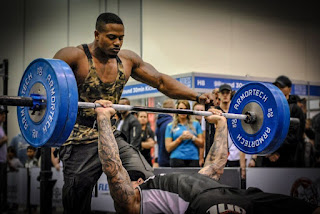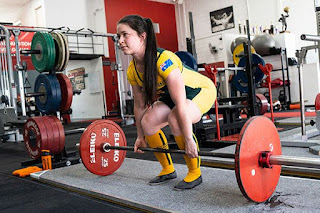Note: This is not an advertisement. This is a personal anecdote regarding my own usage of Krill Oil for health reasons + bodybuilding reasons. You will notice that there is no link below for buying any products and that I take a generic brand of krill oil.
So my doctor years ago prescribed me fish oil or krill oil because I had high cholesterol. It wasn't really a surprise seeing as I eat fish n chips and hamburgers regularly. I admit I am not the healthiest when it comes to eating. Exercise is more my thing.
I chose the krill oil out of the two options, proceeded to take it daily, and then after about a week I promptly forgot to take it regularly. Sometimes, once in a blue moon proverbially speaking, I remembered to take some more pills, but otherwise the krill oil pills sat on the shelf next to the Tylenol, looking lonely and forgotten.
Years later, in January 2023, I decided to start weightlifting again (and possibly try bodybuilding), and I did some research to see if I could supplement my weightlifting somehow with vitamins.
Hence my January 2023 post titled: 5 Bodybuilding Tips you can do today for $0.
At the bottom of that list is a section that says "MORE TIPS" during which I mention that "Fish Oil or Krill Oil [is] not only good for your brain, health, lowering cholesterol, etc, but also good for building muscle."
And when I researched the topic I realized that krill oil would benefit my weightlifting/bodybuilding goals, so I started taking it again... Daily. And I started keeping it not on a shelf, but on my writing desk close to where I like to exercise.
Thus in the morning while drinking my juice I will take 1300 mg of Tylenol (the arthritis variety that comes in 650 mg caplets because they last 8 hours) and 1000 mg of a generic brand of krill oil (two 500 mg softgels).
And in the past month I have been steadily building muscle, but also losing fat around the middle. Is it because I am exercising more? Taking the pills? Both?
Well today I decided to do some research to see what the health benefits are:
- Improves heart health
- Improves lung health
- Boosts the immune system
- Boosts the endocrine system
- Contains Omega 3 fatty acids, (240 mg for every 1000 mg) which affects brain health and other things.
- Reduces inflammation
- Reduces joint pain, stiffness, rheumatoid arthritis
- Reduces the pain and emotional side effects of PMS
- Helps prevent cardiovascular disease, heart attack and stroke
- Lowers blood pressure
- Lowers triglyceride levels
- Decreased risk of colon cancer
So what about muscle growth?
Well, that's difficult to study because muscle growth can often be affected by a number of different factors, but...
"A randomized controlled trial demonstrated that supplementation of 4 g per day of krill oil for 6 months in healthy older adults significantly increased knee extensor strength, grip strength, and skeletal muscle thickness in both men and women."
Krill oil is very popular amongst bodybuilders, with some reporting that they take 3 to 6 grams (3000 to 6000 mg) per day. You will note that I only take 1000 mg, but that is due to my cautious nature about supplements. 3 to 6 grams per day feels... excessive and unnecessary. 1 gram per day is enough for my needs.
Side Effects
May sometimes also cause:
- Bad breath
- Stomach discomfort
- Gas
- Heartburn
- Nausea
- Diarrhea
- Headache
Honestly, speaking for myself... The pills do taste bad which is why I swallow them with juice, and as a consequence I haven't noticed any issue with bad breath. I also only take them in the morning during breakfast, and in my experience with taking similar pills that cause such symptoms that offsets the chance of diarrhea, nausea and stomach discomfort. So I haven't noticed any such symptoms asides from the bad taste.
DO NOT TAKE KRILL OIL IF YOU ARE ALLERGIC TO SEAFOOD.
Talk to your doctor before taking krill oil if you are on medications like blood thinners, estrogens, beta-blockers, diuretics, and aspirin.
Dosage
I routinely take 1000 mg because that is the amount recommended on the bottle. However your doctor can recommend a different dosage depending upon your situation. When in doubt just consult your doctor.

























